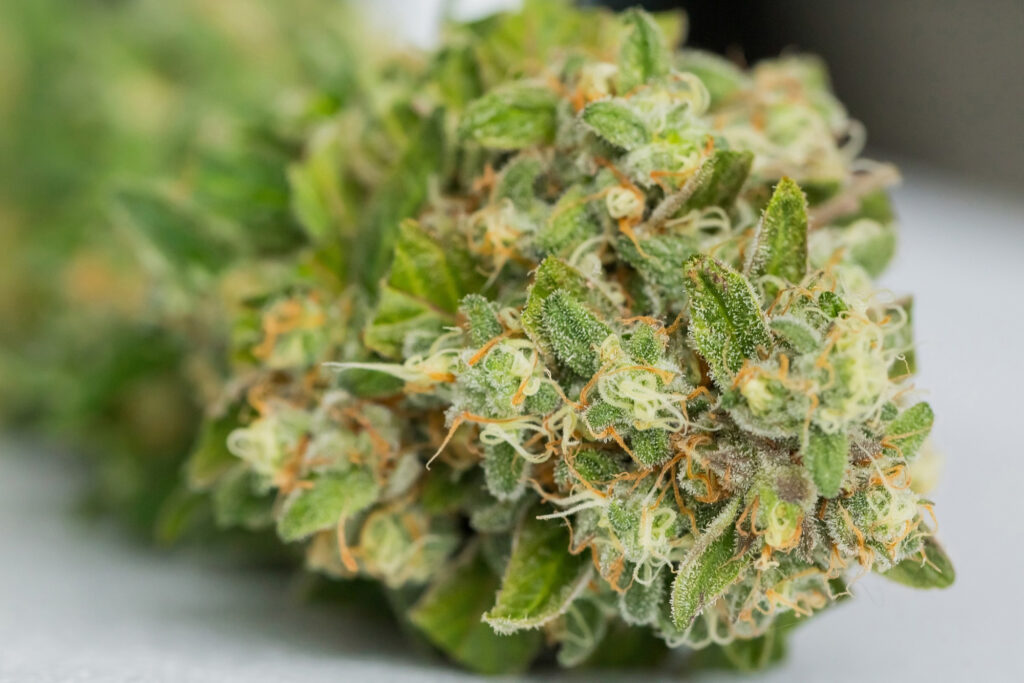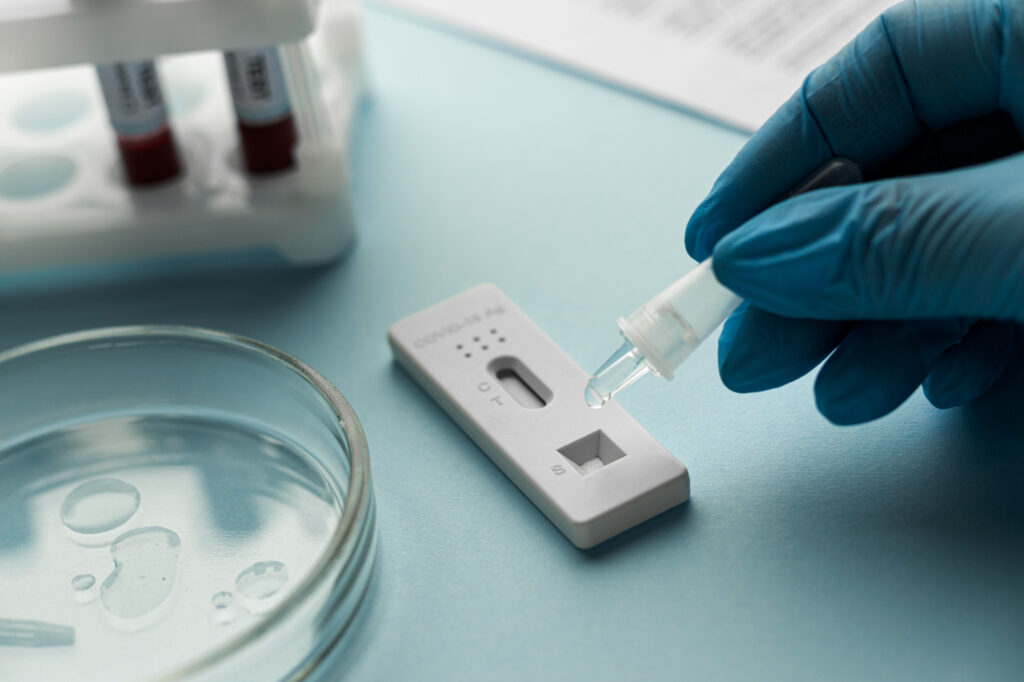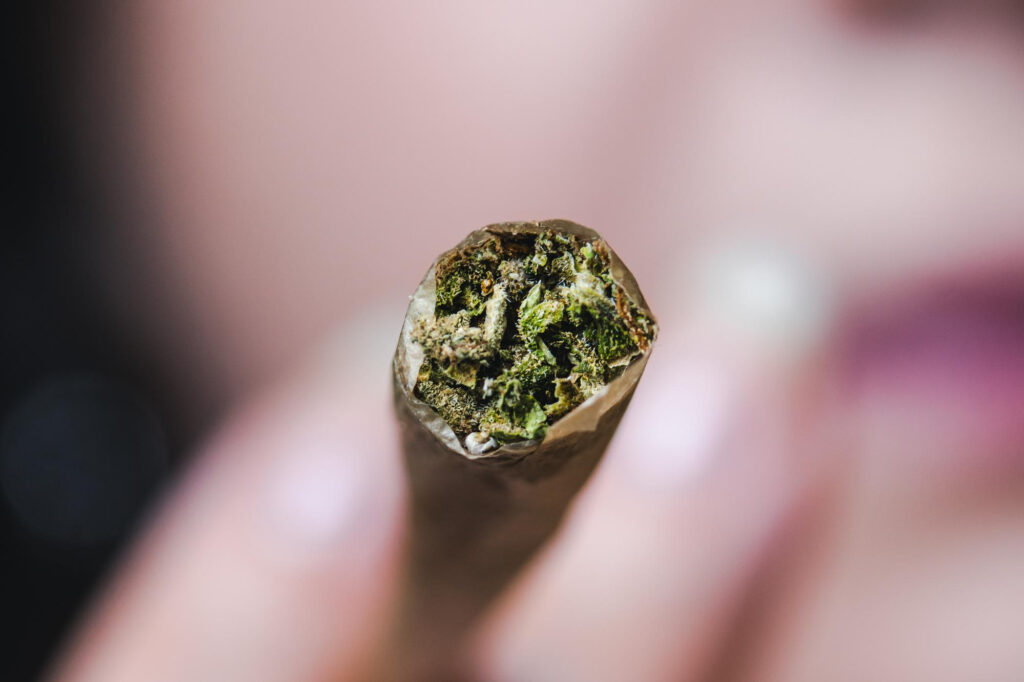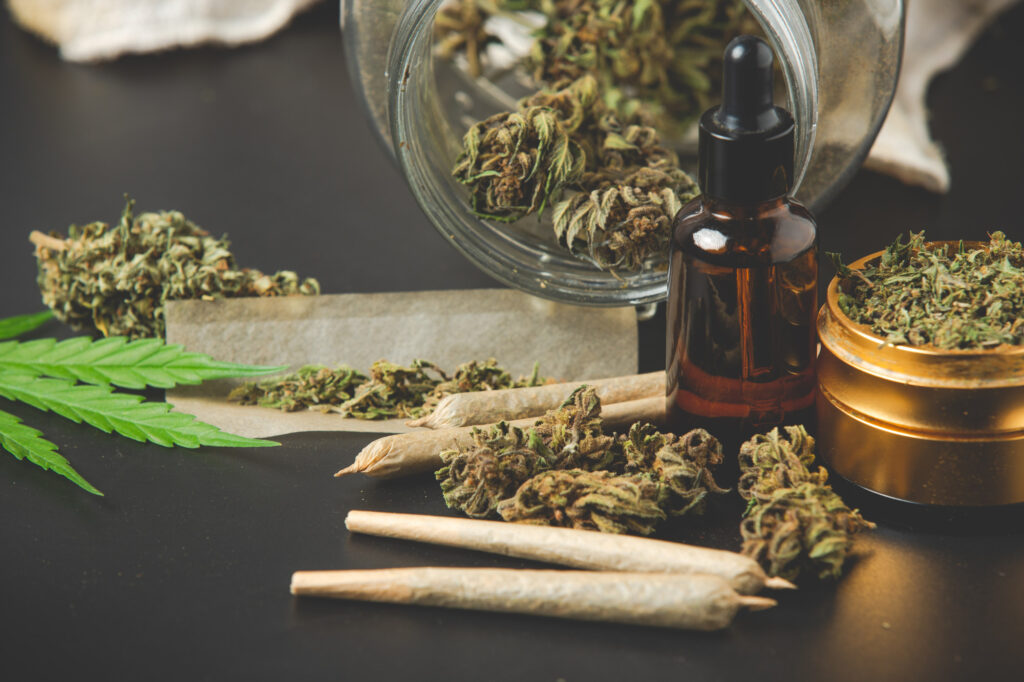If you’re facing a drug test it can be a challenge to pass clean.
That’s likely why you’re looking up how to get weed (cannabis or marijuana) out of your system.
Unfortunately, there’s no quick way to get marijuana out of your system.
This article covers some options, gives you the information you need to understand when you come up positive on a drug test, and offers information on what you can do about it.
Drug testing for weed is rapidly becoming a thing of the past in many states.
The National Institute on Drug Abuse (NIH) reported that among people aged 12 or older in 2021, 18.7% (or about 52.5 million people) reported using cannabis in the past 12 months.
Like alcohol, it’s increasingly viewed as a safe and harmless recreational drug.
Many workplaces don’t share that opinion. Even if you live in a state and are licensed for medical marijuana usage, your employer may still contractually oblige you to avoid cannabis.
That can be difficult and confusing, especially as states across the union are legalizing the drug for recreational use. Your employer might still object. And, you can likely still lose your job.
If you or a loved one is facing a drug test at home or school, it’s a good idea to learn about options and how cannabis affects you.
So, How Do I Get Marijuana Out of My System?
The answer—at least in the short term—is, you don’t. Most drug tests will detect cannabis even if you take preventive measures.
For example, the internet will often tell you to drink several gallons of water just before going in for a urine test.
You might also be advised to rinse your mouth with vinegar or even more dangerous substances like fuel.
The thing is, these rarely work. Most can even cause mouth ulcers.
There is a small chance that vigorously rinsing your mouth out will reduce the number of testable substances in your mouth—but a good mouth swab will collect samples that can’t be rinsed away.
Similarly, drinking several gallons of water won’t flush your urine out enough to completely remove traces of cannabis.
Instead, you’ll just urinate a bit more. That’s because urine flushes toxins out of the kidneys over time—not all at once.
Drinking more water might speed things up, but not enough. Plus, drinking extremely large quantities can be dangerous to your health.

How Long Does Weed Show Up in a Drug Test?
Once ingested, cannabis impacts the body, normally causing a “high” or intoxication.
This high lasts for half an hour to well over 12 hours depending on the cannabis strain and ingestion method.
But, cannabis doesn’t just immediately leave your system. Most highs last just a tiny portion of the time cannabidiols stay in your system.
For example, if you “use” cannabis products, they normally cause a high of 1-2 hours for smoking or vaporization, 4-12 hours for oral ingestion, and 1-2 hours for oils. On the other hand, cannabis has a half-life of 67 hours.

What’s Half-Life?
The half-life of a drug is the time between when a drug enters your system and when it’s metabolized to 50% of the initial dose.
That means if you smoke a joint, it takes 5 and a half days, or 67 hours for the drug to reduce to half.
And you’ll have to wait at least 11 days for it to metabolize out of your system.
However, the chemistry of cannabis is more complex than that.
Half-life is also impacted by the individual’s metabolism, liver health, and other factors. So it’s normal to show positive on a urine test anywhere from 10-15 days after smoking.
Then, it’s also important to consider that many modern drug tests don’t bother to test for THC. Instead, they test for the metabolites THC breaks down into.
THC metabolizes into over 80 different metabolites—so you might show positive on a drug test well after the 15-day mark.
Heavy users also have to be especially careful. The more you smoke or ingest, the more cannabidiols build up in your system.
This means it takes longer to metabolize them away. A very heavy user might have a half-life of as much as twice as long as a light user.

How Long Will a Drug Test Show Positive?
Results Vary
Drug test results always vary depending on the test, your metabolism, and frequency of use.
In most cases, the important factor is how quickly the drug metabolizes in that part of the body.
Most users will only test positive within 1-2 days of inhaling. However, in some sporadic cases, you can test positive for up to 25 days.
For example, the cheapest drug tests will look for THC in the body. Those are easily predicted.
Blood Test
If your organization is using a blood test, they’re not checking for cannabis use.
Saliva Test
Most workplace and school drug tests are saliva tests. These are used because they are fast and affordable.
Most of us are also familiar with taking them from PCR tests for Covid 19.
Saliva drug tests work in a very similar way. You swab the inside of your cheek. The cells tested show positive for drugs from the previous 1-30+ days.
If you’re a light user, it’s unlikely this will show positive for more than 3 days. In some cases, you’ll get a negative test after just 24 hours.
On the other hand, if you’re a heavy user, you can get a positive result for up to 30 days.
However, the same test can also show as negative after 24 hours. It depends on chance, metabolism, normal usage, and other factors.
Urine Test
If your school or workplace is serious about catching substance users, they will use a urine test.
THC is stored in the fatty tissue of the liver and can move through urine for more than 30 days after you smoke.
However, the likelihood of appearance is affected by your weight, your frequency of use, and even the strain you use.
If you smoke once a week, you’ll likely show up positive for 3-4 days after. If you smoke every other day, you’ll show up positive for 5-7 days after your last smoke.
If you smoke daily, you’d likely have to quit for 2 weeks before you’d get a negative result.
And if you smoke multiple times a day, you’ll likely have to abstain for 30+ days to get a negative result.
Hair/Nails Test
If your first drug test shows positive, you can be asked to take a secondary test. A hair/nail test is expensive and therefore is rarely used as a first-line test.
A hair or nail test will show substance use for 30-90 days after the last use.
In addition, if you frequently use, your hair might show drug use for months afterward.

What Else You Should Know?
There’s no way to speed up getting weed out of your system.
However, most tests only show positive for cannabis for a maximum of 3 days if you’re a light user.
If you’re a heavy user, you likely won’t have enough time between learning about the test and taking it to pass.
Additionally, factors like body weight, liver and kidney health, metabolism, and drug usage will affect how long you show positive for a test.
On the other hand, if your job is at stake, you do have options.
For example, drug use disorders are a mental health disorder and a disability. If you take time off work and attend rehab, your work cannot penalize you for past usage (unless they can prove you used on the job).
That’s because you’re protected under the Affordable Care Act (ACA) and the Family Medical Leave Act (FMLA).
If you’re facing testing and you know it will be positive, it may be a good idea to take preventive measures and attend rehab instead.

Getting Help for Marijuana Abuse
Marijuana is often touted as safe to use recreationally. But, so is alcohol. Any substance can be addictive.
And, with data showing that 25% of all daily users eventually become addicted, it’s easy to have a problem.
Any time cannabis use stops being an occasional thing and starts being a daily thing, you should be concerned.
If you have trouble slowing down or quitting cannabis, you need help. That’s more important than any repercussions you might face at work for drug use.
Most importantly, you are legally entitled to that help, whether through your work or through time off. You can also reach out to your insurance for reimbursement for many substance use disorder treatment programs.
Marijuana, like alcohol, is increasingly popular. That doesn’t mean it’s safe to use every day. If you or a loved one needs help, that help is available.
If you have any questions about cannabis use or about our drug and alcohol rehab programs, contact us today to speak in complete confidence with one of our experienced and caring addiction treatment team.

FAQs About Getting Weed Out of System
What are the withdrawal symptoms associated with marijuana addiction?
Marijuana withdrawal symptoms can occur when frequent users stop using the substance. Common symptoms include irritability, increased anxiety, mood swings, and insomnia. Physical symptoms such as appetite changes, headaches, and fatigue are also prevalent. These symptoms can vary depending on the individual’s history of use and may last for several days to weeks.
How long do marijuana withdrawal symptoms typically last?
Marijuana withdrawal symptoms generally begin within 24-48 hours after stopping use. Peak intensity often occurs within the first week, with most symptoms subsiding within 2-3 weeks. However, for heavy or long-term users, some symptoms like sleep disturbances or cravings can persist for a month or longer.
How can medication-assisted treatment (MAT) help manage marijuana withdrawal?
Medication-assisted treatment (MAT) helps ease the discomfort of withdrawal by reducing symptoms like anxiety, irritability, and insomnia. MAT may also decrease cravings, making it easier for individuals to abstain. Combined with counseling or behavioral therapy, MAT provides a structured approach to recovery, improving the chances of long-term success.
What are the best strategies for a successful THC detox?
The most effective THC detox strategies include staying well-hydrated, engaging in regular exercise to burn fat cells where THC is stored, and maintaining a balanced diet rich in fiber and protein. Herbal supplements like milk thistle and dandelion root can also support liver function. However, time remains the most reliable factor in naturally detoxifying the body of THC.
Do herbal supplements help with THC detoxification?
Certain herbal supplements may support the body’s natural detox process. Milk thistle and dandelion root are known for their liver-cleansing properties, while burdock root is often used for blood purification. Although these herbs won’t instantly remove THC, they can assist in overall bodily detoxification when combined with hydration and a healthy lifestyle.
How does diet play a role in detoxing from THC?
A proper diet aids THC detoxification by supporting metabolism and digestion. High-fiber foods, such as whole grains, fruits, and vegetables, help eliminate toxins through regular bowel movements. Lean proteins maintain metabolism, while antioxidants in foods like berries and leafy greens assist the liver in processing THC. Staying hydrated complements these dietary efforts.
What role does exercise play in THC detox?
Exercise plays a significant role in THC detox because THC is stored in fat cells. Regular physical activity, particularly cardiovascular and fat-burning workouts, helps release stored THC into the bloodstream, allowing it to be eliminated. Exercise also boosts metabolism and overall health, speeding up the detox process naturally.
Is marijuana physically or psychologically addictive?
Marijuana can cause both physical and psychological addiction. While physical dependence may manifest through withdrawal symptoms like irritability or insomnia, psychological dependence involves cravings and compulsive use. Individuals may rely on marijuana to cope with stress, anxiety, or emotional discomfort, creating long-term dependency issues.
How does cognitive behavioral therapy (CBT) help with marijuana addiction?
Cognitive behavioral therapy (CBT) is highly effective in treating marijuana addiction by addressing harmful thought patterns and behaviors. CBT helps individuals identify triggers that lead to substance use, develop healthier coping mechanisms, and build confidence in managing cravings and stress. It equips individuals with tools for long-term recovery.
Can you speed up the THC detox process?
While no method can completely speed up THC detox instantly, adopting healthier habits can help the body eliminate THC more efficiently. Staying hydrated, exercising regularly, eating a high-fiber and protein-rich diet, and using liver-supporting herbs like milk thistle can assist natural detoxification. However, time remains the most critical factor in clearing THC.
How long does THC stay in your system?
The duration THC stays in the body depends on factors like frequency of use, metabolism, and body fat percentage. For occasional users, THC may be detectable for up to 3 days. In chronic users, it can remain in the system for several weeks or even up to 30-60 days. Drug test methods, such as urine, saliva, or hair tests, also affect detection times.
What steps can you take to prevent a relapse after quitting marijuana?
Preventing a relapse after quitting marijuana involves building a strong support system, attending therapy or counseling, and developing healthy coping strategies for stress or cravings. Engaging in physical activities, maintaining a balanced routine, and identifying triggers are essential for staying sober. Support groups or cognitive behavioral therapy can also reinforce long-term recovery.


